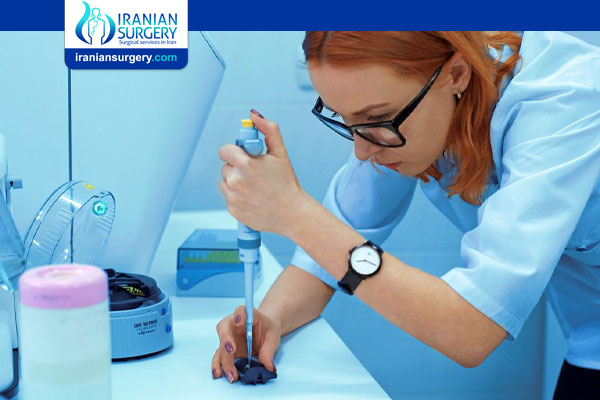Can PGD Be Done Without IVF?
Can PGD Be Done Without IVF?
Your embryos can be tested for abnormal chromosomes before they are transferred to the uterus. This is called preimplantation genetic testing, or PGT. It is done in a lab, using in vitro fertilization (IVF). So, the answer is no; performing PGD requires in vitro fertilization (IVF) to obtain oocytes or embryos for evaluation.
One or more cells from each embryo is sent for genetic testing. Genetically healthy embryos are transferred to the uterus, where they may attach to its lining and produce a pregnancy.
What Genetic Tests Can Be Performed?
Cells from the embryo can be tested for a gene that may produce a specific disease. This will show if an embryo is normal (no disease) or affected (has the disease). It will also show if the embryo is carrying the disease but unaffected by it. An unaffected carrier is someone who can pass the disease to his or her children, but does not personally have any signs of the disease.
A karyotype is another kind of genetic test that can check the chromosomes. It is done during a pregnancy, either by a chorionic villus sampling or amniocentesis. This test shows if the fetus has more or fewer chromosomes than the usual 46. Having too many or too few chromosomes can cause disorders such as Down syndrome (Trisomy 21) or Trisomy 13. This test can also look for out-of-order chromosomes, called translocations, which can cause problems with growth or function. The number of tests for genetic problems keeps growing every year.
What Is Preimplantation Genetic Diagnosis (PGD)?
PGD involves testing an embryo before it implants for a specific, known genetic disorder. PGD is used so that embryos unaffected by the disorder can be returned to the uterus.
What Is Preimplantation Genetic Screening (PGS)?
PGS involves testing an embryo for chromosomal abnormalities. Many embryos with chromosomal abnormalities will not lead to a pregnancy, or will result in a miscarriage. All women will have some eggs that are chromosomally abnormal. All men will have some sperm that are chromosomally abnormal. The percentage of embryos that are abnormal can be affected by many factors, including the age and health history of the parents.
How Is Genetic Testing Performed?
One or more cells are taken from an embryo and sent for genetic testing while the embryo is growing in the IVF laboratory. The testing can be done at different stages using different techniques. Techniques include fluorescent in situ hybridization (FISH), microarray, and single-nucleotide polymorphism (SNP).
Techniques are constantly evolving and changing to be more accurate, easier to run, and give more information. Newer techniques that include microarray and genome sequencing are more common methods of genetic testing.
Would Preimplantation Genetic Diagnosis Guarantee the Birth of a Child Without My Condition?
Accuracy of testing
The accuracy of PGD will vary, and there is the possibility that testing may not be 100% reliable or conclusive. However, testing is 98-99% accurate for most couples. The risks are dependent upon the condition for which PGD is being offered and the couple’s individual test results.
All patients are offered confirmatory prenatal testing (amniocentesis or chorionic villus sampling) if PGD results in a pregnancy.
Chances of conception
It is difficult to assess success rates for PGD because there is currently little data available. As with most fertility treatments, success depends on many factors, including the woman’s age and weight. Additionally, sometimes no embryos are suitable for transfer to the womb, for reasons including:
. Not enough eggs were produced or fertilized
. Embryos do not develop to the blastocyst stage
. Embryos do not survive the biopsy, although this is a rare event
. All the embryos were affected by the genetic condition.
Therefore, a pregnancy cannot be guaranteed using PGD.
About Iranian Surgery
Iranian surgery is an online medical tourism platform where you can find the best doctors and fertility specialists in Iran. The price of PGD in Iran can vary according to each individual’s case and will be determined by an in-person assessment with the doctor.
For more information about the cost of PGD in Iran and to schedule an appointment in advance, you can contact Iranian Surgery consultants via WhatsApp number 0098 901 929 0946. This service is completely free.
Source:
https://geneticalliance.org.uk/information/service-and-testing/preimplantation-genetic-diagnosis-how-does-it-work/
https://www.reproductivefacts.org/news-and-publications/patient-fact-sheets-and-booklets/documents/fact-sheets-and-info-booklets/preimplantation-genetic-testing/


